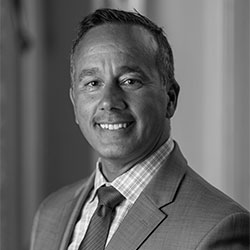Alexander Lopez, New York Institute of Technology – Changing Brain Performance in Kids with Autism
 On New York Institute of Technology Week: How do we get children with autism back into the game?
On New York Institute of Technology Week: How do we get children with autism back into the game?
Alexander Lopez, associate professor of occupational therapy, determines how sports and play can help re-wire the brain.
Alexander Lopez, J.D., received his Bachelor of Science in Occupational Therapy from Kean University in 1997 and a Juris Doctor from New England Law in 2004. As a licensed occupational therapy practitioner and attorney, he has engaged in several community-based initiatives focused on under-served groups. In addition, Lopez has been instrumental in bringing non-traditional services to governmental and private community-based organizations. In 2007, he founded PAR FORE, a golf mentoring program that utilizes the occupational activity of golf as a medium for developing valuable life skills. Since its inception, PAR FORE has grown from serving a handful of adolescents in New York to serving children in Utah, New Jersey, and Nevada.
In 2013, Lopez founded Inclusive Sports and Fitness Inc., a nonprofit aimed to meet the occupational needs of children with performance skill impairments and help them advance their sensorimotor, social, emotional, and cognitive abilities. In addition, he collaborates with industry leaders in science and technology to explore and introduce innovative and more reliable interventions for children.
Changing Brain Performance in Kids with Autism
Children with Autism may present with delay in motor and information processing skills, resulting in impairments in play and mainstream recreation activities.
These deficits often cause children who are “delayed” to be alienated, marginalized, and deprived of opportunities to participate in mainstream sports.
The good news is that the brain and body are exceptionally malleable, and occupational therapy interventions can be effective in changing brain performance. Children with special needs can develop strategies for minimizing or controlling the effects of unpleasant or confusing sensory information with skilled interventions.
My research examines how sports and play can advance sensory and cognitive performance in children with autism. We rewire the brain by utilizing strategies that enable it to processes sensory information in a more functional manner. Recognizing that every play experience is a brain experience, we enlist a number of strategies to promote structural and functional brain changes. Strategies can be specifically designed to motivate and engage children while addressing their unique sensory-motor, psychosocial, and cognitive-behavioral needs.
When designed appropriately, occupation-based athletic programs can provide a fun, safe setting and lend themselves to therapeutic strategies. Children with special needs do not have opportunities to exercise and develop foundation skills needed for mainstream activities. For example, learning how to swing a baseball bat can advance motor and cognitive performance skills such as coordination, balance, attention, sequencing, and planning. These performance skills are essential and can be transferred to most daily activities.
In practicing and reinforcing these foundation skills, we can break the cycle of dysfunction and facilitate the development of new neural pathways that will promote engagement and participation in mainstream activities.



Psychosis is a disease name that depends on where the hundreds of lobes in the brain go down. When an electromagnetic radiation knife is irradiated to the brain, blocking occurs depending on the location. Many types of psychosis are caused by the EMR knife (like a laser surgical knife) blocking brain function in different areas. Treatment is achieved by removing the EMR knife and turning on the brain function in the turn-off state.